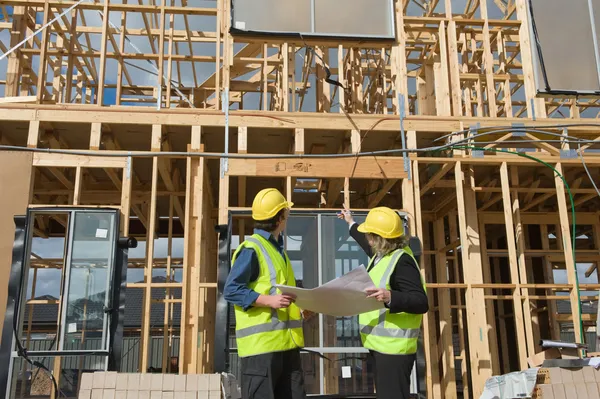Embarking on a journey to Canada for a building inspection career is a gateway to abundant opportunities. In a landscape marked by aging infrastructure and a booming construction sector, qualified inspectors are highly sought after. This guide unveils essential steps for newcomers to secure building inspection jobs in Canada through employer visa sponsorship programs.
Overview of the Building Inspection Field in Canada
The role of building inspectors in Canada is pivotal, ensuring that construction adheres to safety codes and bylaws. From residential to commercial, industrial, and institutional projects, inspectors play a crucial role throughout various construction stages. Their assessments cover structural integrity, electrical systems, plumbing, energy efficiency, and fire safety, making certified professionals indispensable.
Poultry Jobs in USA for Internationals With Visa Sponsorship
Factors driving the industry’s growth include Canada’s real estate expansion, adoption of new green building standards, and the rehabilitation of existing infrastructure. Prime job markets include British Columbia, Ontario, Alberta, and Quebec, particularly in large metropolitan cities. Bilingual inspectors are in demand in parts of Quebec, New Brunswick, and Ottawa.
Building inspectors find employment in municipal governments, private firms, or as self-employed consultants. The role primarily involves site visits, with a focus on reporting and advising on identified violations. The profession demands keen attention to detail, analytical skills, and professional judgment, all underpinned by specialized certification.
Texas Tech University Freshman Presidential Scholarship For Undergraduate Students 2024.
Key Advantages of Building Inspection Careers
Beyond the allure of immigration, a building inspection career in Canada offers several rewards:
- Respected professional status and full utilization of expertise.
- Attractive salaries, benefits, and opportunities for advancement.
- Satisfaction derived from contributing to community safety and livability.
- A mobile work environment with diverse project assignments.
- Leverage technical skills without the need for higher education.
- The potential to establish and run your own inspection business.
Education Prerequisites and Skill Requirements
While licensing distinguishes professional inspectors, newcomers can qualify for entry-level roles with the following criteria:
- High school diploma or equivalent.
- Technical degree or construction trade certification (optional but advantageous).
- A strong understanding of building codes and standards for the respective province.
- Proficiency in math, science, and computer literacy.
- Detail-oriented with critical thinking aptitude.
- Physical stamina and mobility for on-site assessments.
- Excellent communication and client service capabilities.
Newcomers without prior experience are often hired as assistants or trainees, providing hands-on learning opportunities that set the stage for certification. Some employers may also require a valid driver’s license and access to a vehicle.
Visa Sponsorship Programs
Provincial Nominee Programs nominate applicants for permanent residency based on their skills, with employers providing supporting job offers. Candidates undergo assessments on credentials, language proficiency, and intent to reside in the nominating province. The Temporary Foreign Worker Program allows foreign hires for up to 2 years, requiring local advertising by employers before considering international candidates.
Job Search Strategies
Discovering job openings with visa sponsorship involves exploring construction associations, job banks, recruitment firms, and direct outreach to employers. Assistant roles serve as stepping stones, building credentials for certification. Willingness to work nationwide, including small towns and remote sites, expands job prospects.
Certification Requirements
Elevating skills and employability, professional inspection credentials vary by province and commonly include experience under a certified inspector, passing exams, field training, background checks, and fees ranging from $500 to $2000+. Certification is mandatory for municipal and most private firm inspectors, benefiting self-employed consultants as well.
Tips to Land the Job
Maximize chances of securing building inspection jobs with visa sponsorship by researching immigration pathways, obtaining relevant construction trade credentials, seeking mentorship from experienced inspectors, highlighting technical skills, and expressing enthusiasm for compliance, codes, and public safety during interviews. Evaluation of international credentials and willingness to work in high-demand areas contribute to success.
Career Progression
Canada’s robust construction sector ensures continuous demand for qualified building inspectors. Gaining employer sponsorship provides a direct pathway to immigration and in-demand roles. Certification is essential for advancement, and newcomers can thrive by staying flexible, learning on the job, and starting in assistant positions to progress through their building inspection careers.
Conclusion
With persistence and dedication, newcomers to Canada can realize their dream of becoming respected building inspection professionals through visa sponsorship. The country’s dynamic construction landscape guarantees ongoing opportunities, making the journey towards certification and career progression a rewarding one.

